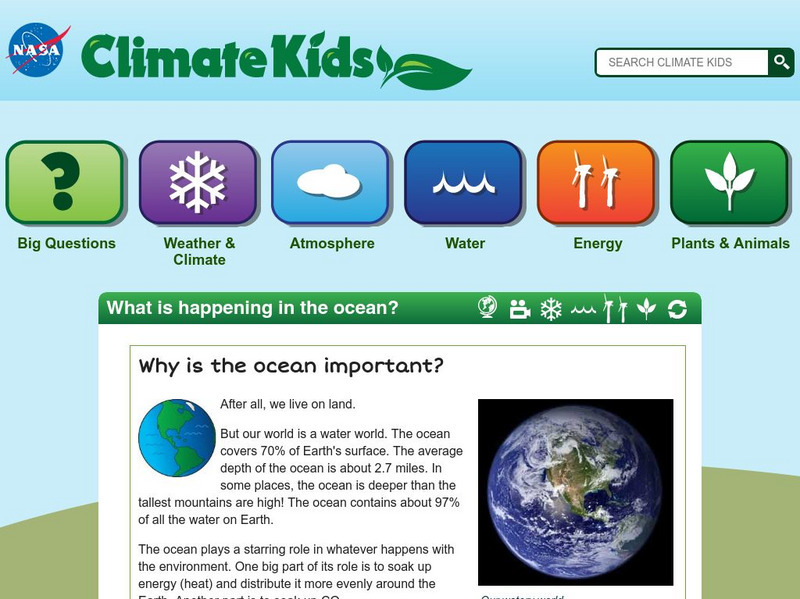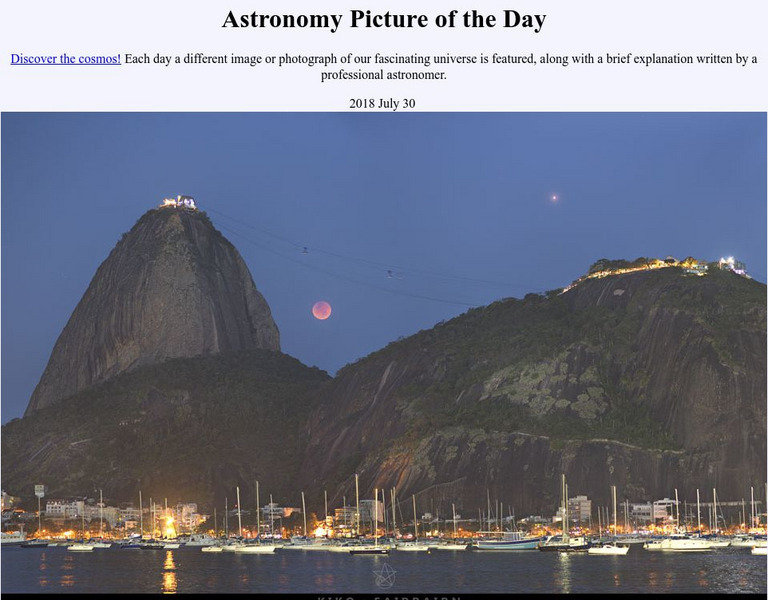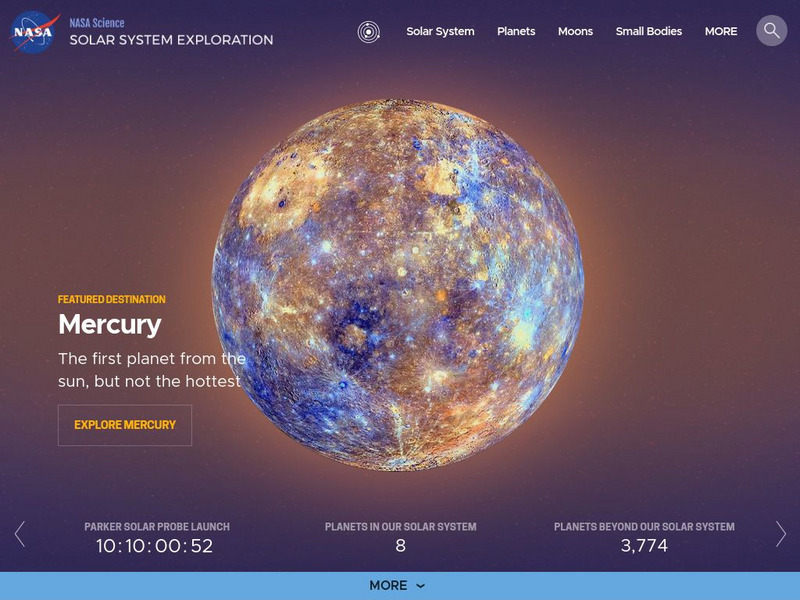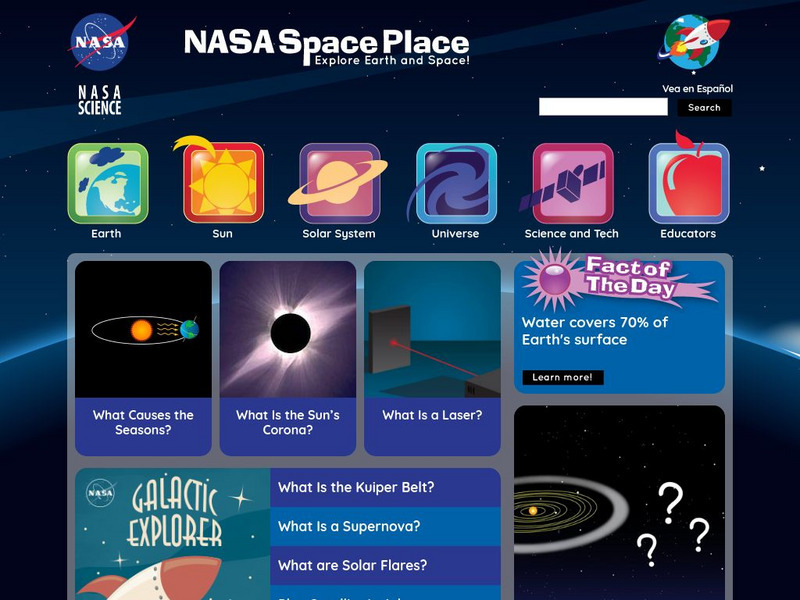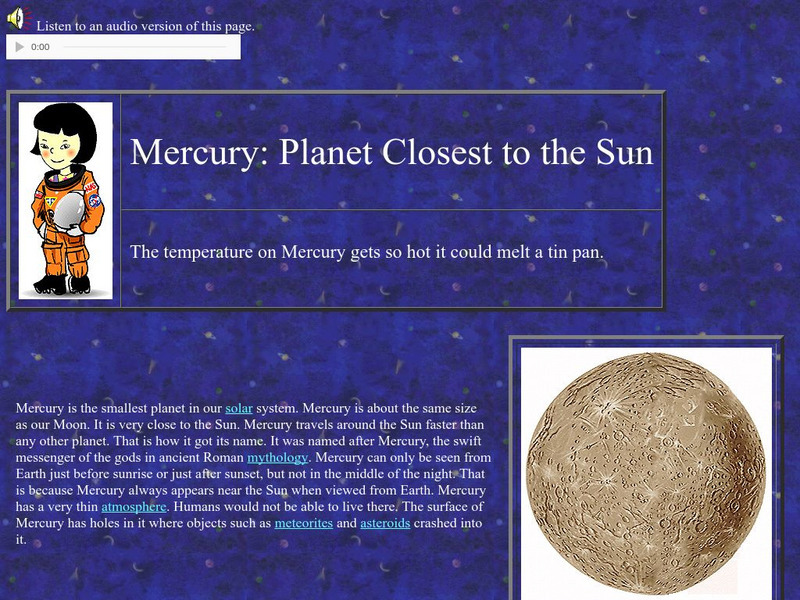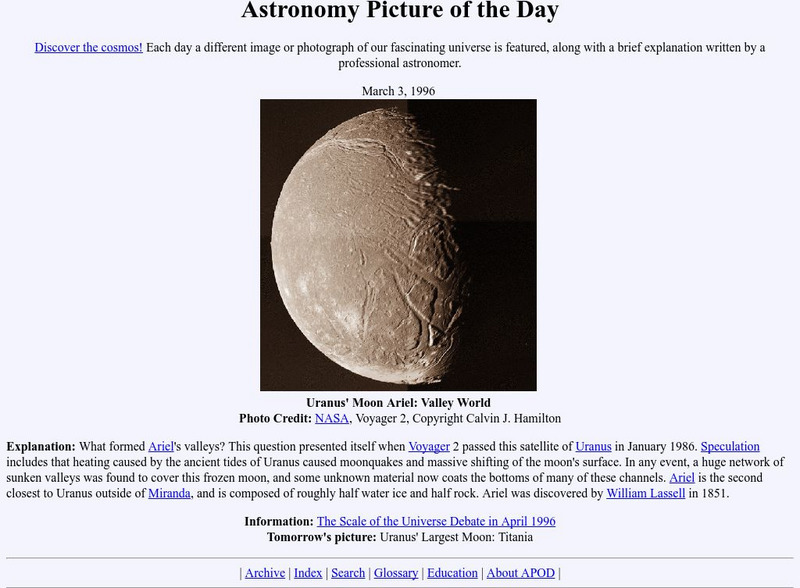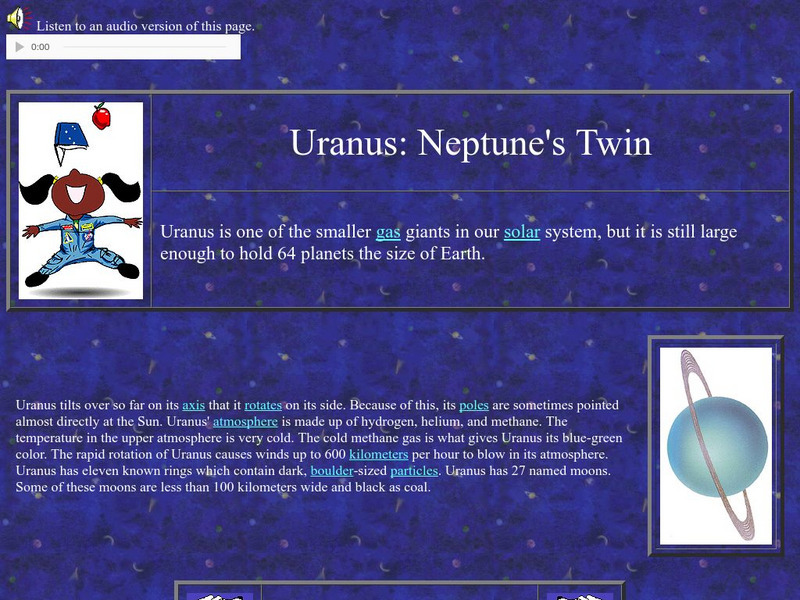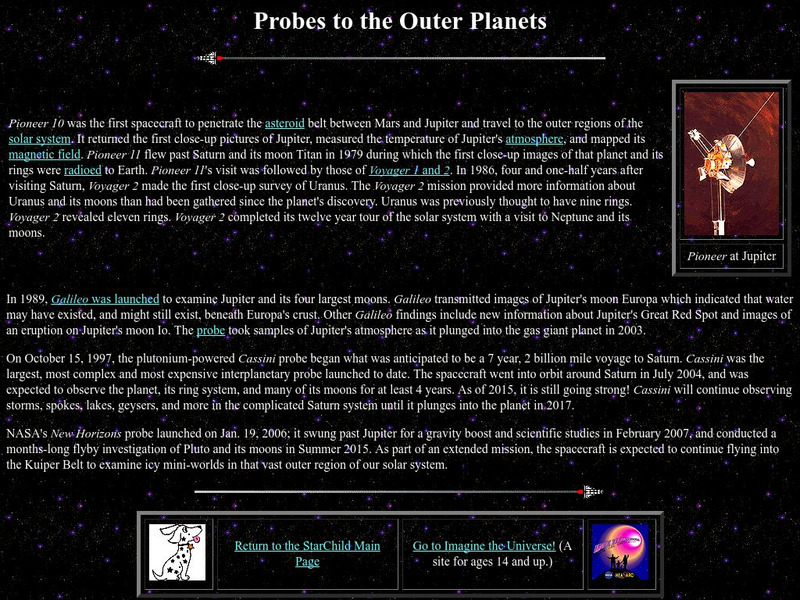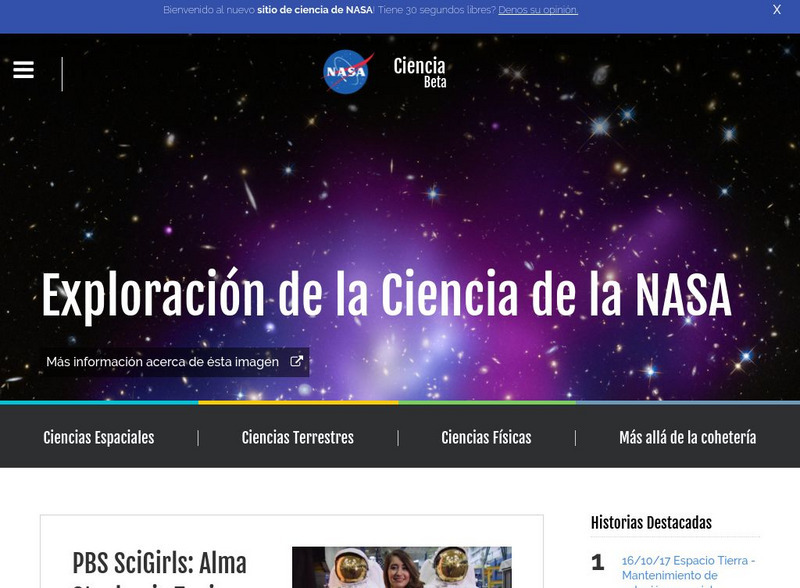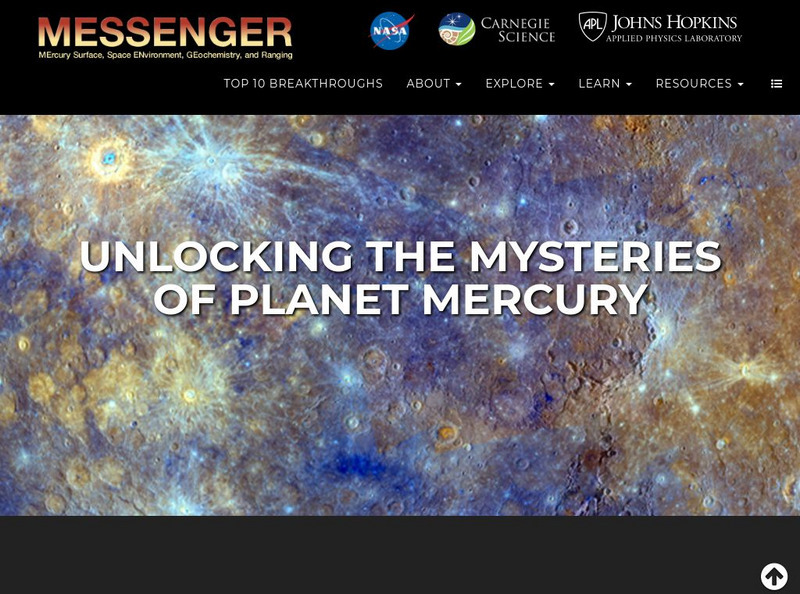NASA
Nasa: Big Questions: Oceans
Learn more about the oceans that cover so much of our planet. Five big Q and A's are addressed including why oceans are so important, how oceans soak up energy and gases, the relationship between climate and oceans, and the function of...
PBS
Pbs Learning Media: The Water Planet
75% of our earth is covered by water. Water can be found in oceans, lakes, rivers, groundwater, and sea ice. View these captivating photos of our earth showing the different water sources and images of our earth taken by NASA. Background...
NASA
Nasa: Kepler and His Laws
This site from NASA provides biographical details about the lives of Tycho Brahe and Johannes Kepler. Discusses Kepler's successes at developing laws of planeatry motion. States the three laws and discusses each one individually....
NASA
Nasa: Nasa's Carl Sagan Fellows to Study Extraterrestrial Worlds
NASA announces the new Carl Sagan Postdoctoral Fellowships in Exoplanet Exploration, created to inspire the next generation of explorers seeking to learn more about planets, and possibly life, around other stars.
NASA
Nasa Space Science Data Archive: Clementine Mission
Contains the official record of the Clementine mission's survey of the moon, with links to more detailed information about the spacecraft and its mission. Includes images of the mission and planets.
NASA
Nasa: Astronomy Picture of the Day:
A different image is featured each day along with descriptive narrative. NASA offers different and sometimes unexpected views of our Earth and the universe.
NASA
Nasa: Learn About Me: Curiosity
Learn about the robot that is exploring Mars to see if the planet could supported microbes with this interactive site. Students investigate the parts of the robot by clicking and rotating a picture of the rover.
NASA
Nasa: The Space Place
This site from NASA's Space Place is geared towards early elementary learners. It offers detailed instructions for crafts and activities related to space, games and a teacher resource area. Students can also ask an expert at this site.
NASA
Nasa Star Child: Mercury
Provides good information about Mercury and is a good starting point for information about the planet along with pictures and audio. Links to a simple fact table, puzzle, glossary, and more detailed information.
NASA
Nasa: Astronomy Picture of the Day: Uranus's Moon Ariel
Provides a brief overview of Ariel, one of Uranus's moons. Details how its deep valleys were formed. A NASA astronomy picture of the day.
TED Talks
Ted: Ted Ed: Nasa & Trappist 1: A Treasure Trove of Planets Found
Seven Earth-sized planets have been observed by NASA's Spitzer Space Telescope around a tiny, nearby, ultra-cool dwarf star called TRAPPIST-1. Three of these planets are firmly in the habitable zone. In this video, NASA Scientists...
NASA
Nasa Star Child: Uranus, Neptune's Twin (Level 1)
Get to know the twin of Neptune with this introduction to Uranus. Listen to the information in an audio file. Features include a printable version of the page, and vocabulary words are linked to a glossary of terms.
Society for Science and the Public
Science News for Students: So Many 'Earths'
Article reports on the recent discovery that many suns in the universe host "Earth-like" planets. Includes a vocabularly list.
NASA
Nasa Star Child: Probes to the Outer Planets (Level 2)
This site has a description of the many probes sent to the outer planets, including pictures and vocabulary words linked to a glossary of terms. Other links on interesting facts and more detailed information are also included.
NASA
Nasa Star Child:space Probes (Level 1)
This page of NASA's excellent Starchild site deals with Space Probes. Learn about the various planetary probes by clicking on the planet of interest.
NASA
Nasa: The Space Place
This site is geared towards elementary learners, but most lessons can be modified for older learners. Space-related classroom activities, printable images of Earth and space, thought-provoking Space Place Musing podcasts and math-related...
NASA
Nasa: Goddard Institute for Space Studies: Time on Mars
This site provides a Java-based program called Mars24. You can download this to your computer to keep track of time on Mars.
NASA
Nasa: La Historia De Hoy: Today's History (Spanish)
Explore the depths of space and science comprehensive information about the meteor showers in 2004, the transit of Venus, virtual reality, and other interesting science history.
Johns Hopkins University
Applied Physics Laboratory: Messenger Home
Home page for NASA's Discovery Program Messenger to the planet Mercury. Site provides details of the planned mission, its experiments and the science and management teams. Linked Quicktime animation files are very large and detailed....
NASA
Nasa: Asteroids: Overview: Ancient Space Rubble
Comprehensive look at asteroids, with many useful facts, photos, and related links. Provides a detailed account of how asteroids get their names and a timeline of significant dates.
Smithsonian Institution
National Museum of Natural History: Ocean Planet
Detailed website that was a companion to a 1995 traveling exhibit of the Smithsonian. Links to lesson plans and other educational materials are at the bottom of the page. Enter the exhibition to explore the world of the ocean.
